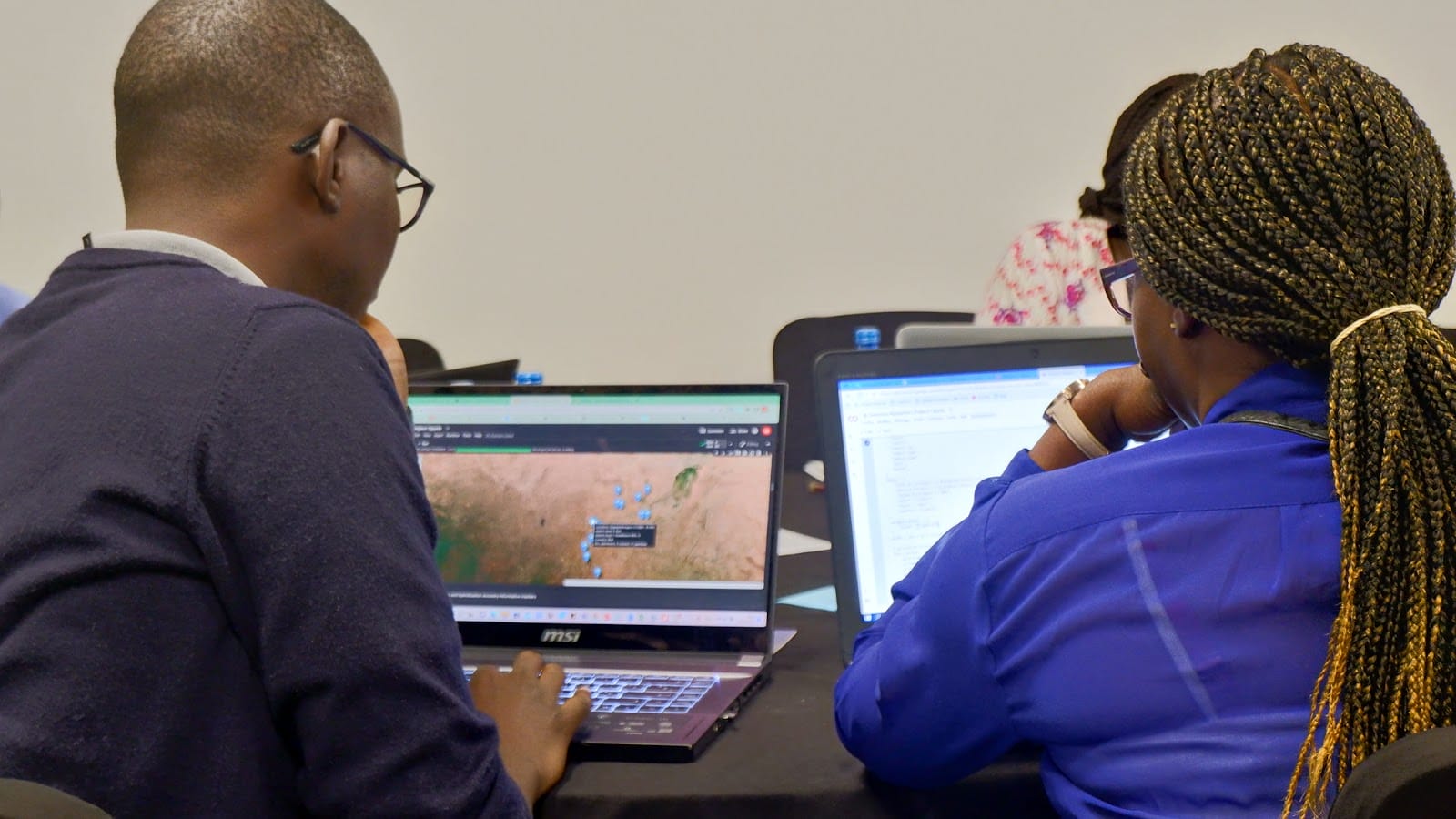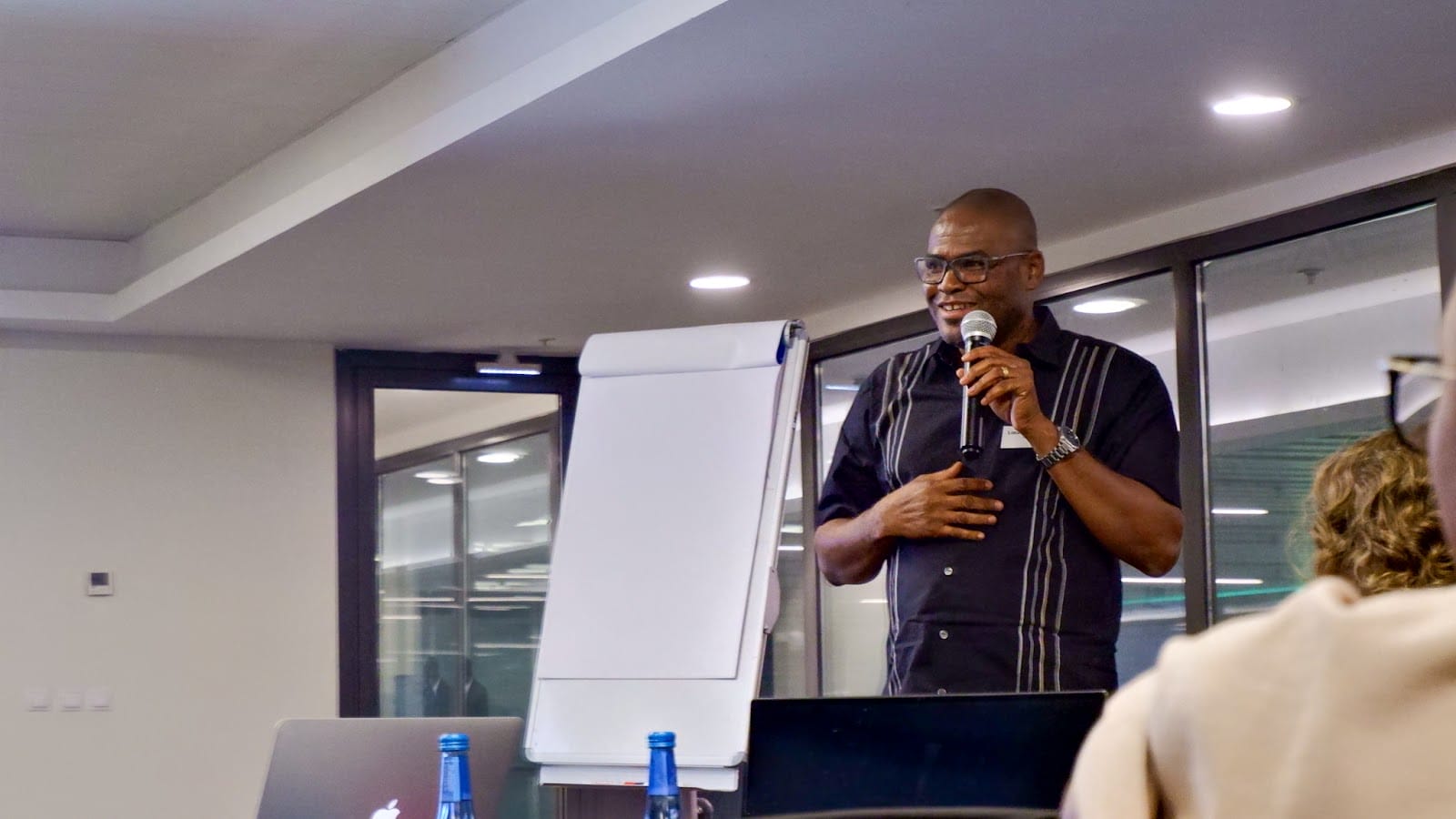
After eight months of regular online workshops, 27 participants converged on Kigali, Rwanda for a pre-conference working meeting. Held at the Kigali Convention Centre, the session included participants from across Africa interested in learning how to use genomic data analysis tools.
"It was so nice to meet in person," says Alistair Miles, who leads the course and malaria vector surveillance for MalariaGEN. "There's nothing better than sitting next to friends and colleagues, looking at each other's computer screens, solving problems, and making new scientific discoveries together in real time."
The morning began with a speed-networking session, and then participants got to work using data from the Ag1000G datasets to answer questions about malaria vector biology. Some tracked insecticide resistance mutations, while others tried to identify different subpopulations of mosquito in a given country. Among the most popular analyses to tease out hidden variables was Principal Component Analysis, which can be tricky to interpret. Working in groups with teaching assistants there to help, thorny problems could be solved quickly. At the end of the day, participants shared their results and challenges.

"This genomic hackathon represented a great initiative where online learning and research networking/collaboration became real and effective,” says Nathalie Amvongo-Adjia, a postdoctoral researcher at CRID-Cameroon, who is on the course and participated in the hackathon. “Tonnes of knowledge and practical skills were acquired, enabling me to act for and advise on the genomic surveillance of malaria vectors in endemic countries. A really fruitful experience!”
“It was an exciting honour and privilege to be involved in the planning and running of the MalariaGEN-PAMCA Genomic Data Analysis Hackathon,” says Paballo Chauke, who is MalariaGEN’s training coordinator and who organised the hackathon. “The hackathon was a fruitful learning opportunity and space for trainers, teaching assistants, and participants to analyse data and get to know each other better. It was an extremely successful undertaking and we are looking forward to collaboratively organising similar events in future.”
The hackathon proved a high point in the first year of the course, which will continue until early 2023.
For more information and to watch lectures from the course, visit the course website on Github.



